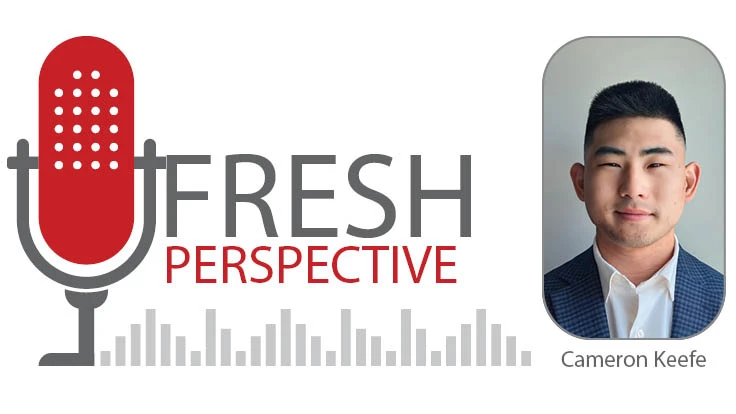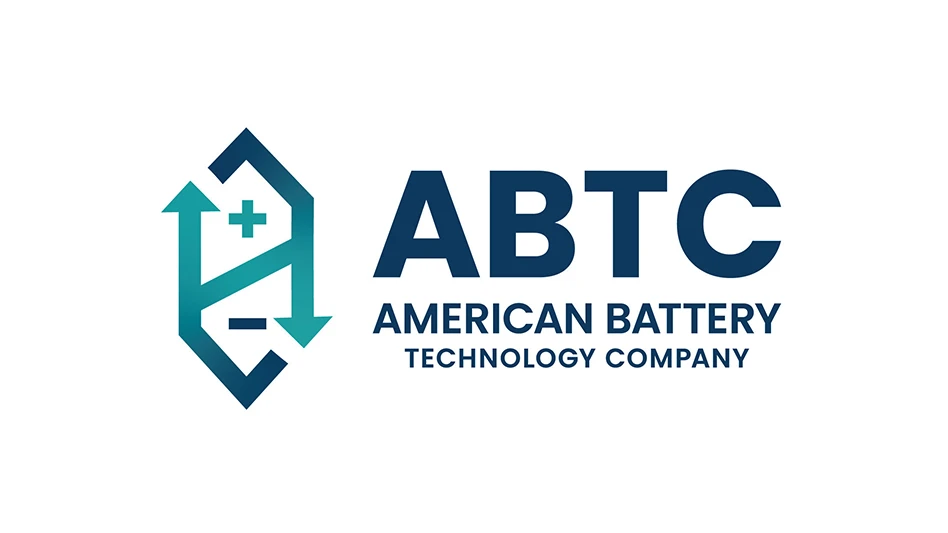When Robert A. Render’s father Hank, a scrap metal dealer, informed him that they would be entering the plastic recycling business, Robert was more than a little skeptical. "When my father walked in back in 1982 and said we were going to be in plastics recycling, I thought he was out of his mind," he says bluntly.
Nearly 20 years later, Robert is president of Maine Plastics Inc., a company with $10 million in annual sales, and he has moved well beyond the skepticism.
Robert and Maine Plastics executive vice president David J. Kaplan acknowledge, though, that people they talk to from outside the plastics industry are still surprised to learn of the size of the industry. "Often at a cocktail party or social function, the comment is ‘that will be a good industry one day,’" says Kaplan, "but it’s been going on for 50 years."
A Plastic Offshoot
Hank Render founded Maine Scrap Metal in 1969 in Maine Township, Ill., outside of Chicago. After a random conversation with an individual in the plastics industry, Hank decided plastics recycling would be a worthwhile niche to enter.
The conversation and subsequent decision took place in 1982, Robert notes, during a time of difficult market conditions in the scrap metal segment.
Soon after the first truck loads of plastic shapes and parts began rolling in, it became apparent that separate operations would have to be established. "It was clear that the plastic couldn’t be kept clean in a scrap metal environment," recalls Robert. "Contamination levels are much stricter in the plastics industry," he notes.
Maine Plastics found separate space in an industrial building in North Chicago, which is almost 40 miles north of Chicago. "We came up here, in part, because two of our biggest suppliers at that time were in this area," notes Robert.
Suppliers to Maine Plastics are in the manufacturing sector. The company does not process post-consumer bottles and jugs, but rather processes and markets scrap plastic generated by a wide variety of manufacturers who work with plastic.
The resulting flakes and pellets made by Maine Plastics are sometimes sold to the same sector of companies using plastics in the manufacturing process, but they are available to a global market.
Maine Scrap Metal is still operating in Des Plaines, Ill., but Maine Plastics Inc.—now a separate company—is much more than a side venture. Kaplan has been helping to expand the company since 1989, and Robert has been devoting full-time attention to Maine Plastics since 1993. (Hank Render is still a partner in operating Maine Scrap Metal, along with Gene Cohen.)
Although there have been challenges—including the kind of cyclicality that scrap metal and paper dealers are accustomed to—Render and Kaplan have built a solid plastics recycling company.
Going Global
If Maine Plastics was conceived as a way to service a handful of local plastic scrap generators, Kaplan and Render have extended the company’s business well beyond the initial concept.
Materials are trucked into the company’s 160,000 sq. ft. facility from throughout North America. "We buy from all over the country, including Puerto Rico, and we sell all over the world," says Kaplan. "We buy truckloads from overseas: Korea, Canada, the U.K., Mexico. In-plant programs can be set up anywhere. We have one supplier with more than 10 plants in different parts of North America."
The Chicago region has turned out to be the ideal place from which to operate an operation dependent on affordable trucking opportunities. "The great thing about Chicago is that there are always people bringing things in and out of the area, so you can get great backhaul rates," says Render.
"We’re in a freight-advantaged spot," Kaplan agrees. While scheduling backhaul arrangements with truckers is the key to the company’s ability to cast a wide net of operations, Maine Plastics also has two tractor-trailers to handle locally generated material.
The company takes possession of most of the material that flows into its yards, but it also offers toll processing services. "A company may wish to re-use its own material, but they may not have the equipment or personnel to do the grinding and quality control testing on site. We can granulate it to the standards they require, do some post-granulator processing, and perform tests and provide results so that there is an audit trail," Render explains.
Material that the company owns is processed, cataloged and inventoried for sale. Render and Kaplan say their inventory is what can help set them apart from brokers with whom they compete. "We’re kind of like the Walgreens of the plastics industry. If you need it, we probably have it," says Kaplan.
From its earliest days under Hank Render’s leadership, the company was also certain to impress its multi-national clients with prompt payment and service. "Our credit record has impressed people. Hank would do whatever he could to pay people in their terms and help set us apart initially," Render says. "To be fair, to provide good service and to pay our bills was a very good starting plan," he quips.
Taking a professional approach with access to information has also been a key advantage the company has offered to clients. "We have a very good reporting system for our customers, offering tracking, quality reports and inventory reports," says Render.
Maine Plastics’ ability to supply a wide range of materials to manufacturers is matched by its ability to take in all materials generated by some of the same manufacturing companies. "A generator may send out a material list of what it wishes to sell, different material in different colors, and a broker will pick and choose from that list. We’ll make an offer for everything on the list and price it appropriately," says Render. The ability to handle the wide range of materials makes it easy for the manufacturer.
The broker’s advantage, both Kaplan and Render are quick to note, is the absence of overhead. But Maine Plastics has been able to exploit its own advantages to create a growing business that has won loyal customers within the plastics industry.
"We’re not at the mercy of someone else regarding quality, as a broker might be," says Render.
Regarding quantity and variety, Maine Plastics is confident it is a market leader in secondary plastic offerings. "We have 34 single-spaced pages full of specs and codes of different resins, from 32 major ‘families’ of plastics," notes Render.
Their overall volume of business has been helped by the fact that plastics recycling and secondary resins are much more widely accepted than they were ten years ago. "Years ago, many companies wouldn’t even consider using regrind," says Kaplan. "Ten years ago or even five years ago there were [consuming] companies who didn’t buy any regrind, but now they are doing so to stay competitive." Similarly, generators of scrap plastic are much more attuned to the market now than they were a decade ago. "Many scrap generators did not want to be bothered that their scrap was marketable," Kaplan recalls of his earlier years in the business.
The acceptance and availability of recycled plastic is part of the reason "you can go to your local supermarket and buy a $3 resin lawn chair," Kaplan states.
Price Points
As with all other commodities, pricing fluctuation can provide one of the ongoing challenges for plastics recycling companies. According to Kaplan, various market forces can change the way secondary plastic regrind is priced, and determining the price is not always as clear-cut as with other recycled materials. "In the metal and paper markets, there are publications out there that tell you what the going prices are, but in plastic it’s worth what someone is willing to pay for it," he comments.
He says that there is a fairly well established hierarchy of plastics pricing based on color and type of resin, but that external factors can cause changes to that structure. "Ten years ago regrind was valued at 50% of virgin as a rule of thumb, but now supply and demand are more at play." An example noted by Kaplan occurred three years ago when there was a shortage of virgin polycarbonate, demand for regrind shot up, bringing up the price along with it.
Now, plastics of all types are subject to fluctuations based on a spike in demand or a build-up in inventories creating an oversupply. Other world events can also affect the markets. "The day after Kuwait was invaded, the price of gas went up 15 cents and plastics prices started to firm," recalls Kaplan. "A bad cotton crop in China makes polyester more desirable, a plastics factory explosion can affect markets, and a global economic situation like the Asian crisis can affect pricing," he adds.
Despite the fluctuating markets, Render says the company has made the commitment to become a sizable player with the ability to ride out down markets and thrive in good ones. "It could be that one item is shooting out the door while another is just sitting there. Certain materials are just in short supply all the time—they’re always in demand," he says.
Other materials, meanwhile, "just aren’t marketable. The more highly engineered a polymer is, often the harder it is to sell," says Kaplan. "The irony is those materials are also the most expensive in the virgin format. But we’ll always buy," he says, emphasizing the company’s approach to be a full service recycler of materials.
Sponsored Content
Still relying on manual sorters?
Let AI do the heavy lifting. Waste Robotics delivers reliable, high-performance robots tailored for complex waste streams. They require minimal maintenance, are easy to operate, and are designed to boost your recovery rates. Smarter sorting starts with the right partner. Waste Expo Booth #1969 & REMA #2843
Click here to see our robots in action!Sponsored Content
Still relying on manual sorters?
Let AI do the heavy lifting. Waste Robotics delivers reliable, high-performance robots tailored for complex waste streams. They require minimal maintenance, are easy to operate, and are designed to boost your recovery rates. Smarter sorting starts with the right partner. Waste Expo Booth #1969 & REMA #2843
Click here to see our robots in action!Sponsored Content
Still relying on manual sorters?
Let AI do the heavy lifting. Waste Robotics delivers reliable, high-performance robots tailored for complex waste streams. They require minimal maintenance, are easy to operate, and are designed to boost your recovery rates. Smarter sorting starts with the right partner. Waste Expo Booth #1969 & REMA #2843
Click here to see our robots in action!Sponsored Content
Still relying on manual sorters?
Let AI do the heavy lifting. Waste Robotics delivers reliable, high-performance robots tailored for complex waste streams. They require minimal maintenance, are easy to operate, and are designed to boost your recovery rates. Smarter sorting starts with the right partner. Waste Expo Booth #1969 & REMA #2843
Click here to see our robots in action!Sponsored Content
Still relying on manual sorters?
Let AI do the heavy lifting. Waste Robotics delivers reliable, high-performance robots tailored for complex waste streams. They require minimal maintenance, are easy to operate, and are designed to boost your recovery rates. Smarter sorting starts with the right partner. Waste Expo Booth #1969 & REMA #2843
Click here to see our robots in action!On the Job
Granulators reducing material to consistently sized flakes are at the heart of the company’s processing operations.
Maine Plastics operates nine granulators, many of them made by Rapid Granulator Inc. of Rockford, Ill., that downsize incoming plastic parts and trimmings. A fleet of more than a dozen Toyota forklift trucks move incoming material and Gaylord-style boxes full of processed flakes to and from the granulators and shipping and receiving areas.
The names of the high-profile petro-chemical and manufacturing companies appearing on the sides of the boxes, some of them multi-billion dollar global firms, testify to the fact that Maine Plastics is successfully serving the most significant players in the plastics industry.
While most material is granulated, there is also some baling taking place. The company recently took delivery of an upgraded baler made by Excel Manufacturing, St. Charles, Minn., designed to handle the task of baling stubborn materials such as five-gallon water jugs.
"We had to upgrade and install a sturdier baler with stronger plate pressure that can handle some of the stubborn plastic material," says operations manager Reggie Lee, who has been with Maine Plastics for seven years.
A guillotine-style cutter made by the Canadian company Roeqco was purchased in late 2000 to help pre-process larger plastic parts and purgings and to cut rolls of plastic film.
The assortment of materials coming into the facility represents the broad spectrum of how plastic is used by manufacturers, with incoming streams ranging from automobile interior and exterior parts to excess plastic promotional items once given away by restaurants and retailers.
Without question, the amount of material coming in has grown. "I credit the people who were around when Maine Plastics started; they were an innovative bunch," says Kaplan. "And that carries on today. Where other people will say, ‘It’s not what we do,’ we’ll take a step back and consider it."
Innovation and the ability to consider new ideas has been and will remain a strength of the company, says Render. "I was using the word ‘intrepreneurship’ back in 1989. We were one of the first companies with a foreign sales corporation, and that’s just one of the ventures we’ve tried out. Dave and I joke about how many K-1 (IRS partnership forms) we have in our tax returns, because of the ventures we have tried."
Render says he has a reputation around the office for forming what have become known as "Bob deals," new side ventures that often bring looks of concern from co-workers. "Around here I am definitely made fun of because of ‘Bob deals.’ They are strange, they take a lot of work, and sometimes they don’t go anywhere. But sometimes they bear a lot of fruit," notes Render.
"And when they do," adds Kaplan, it’s amazing how people change their minds."
Just like Robert Render has changed his mind from believing his father had made a wrong turn when he decided to get into the plastics recycling business nearly 20 years ago.
The author is editor of Recycling Today and can be contacted via e-mail at btaylor@RecyclingToday.com .
Get curated news on YOUR industry.
Enter your email to receive our newsletters.

Explore the August 2001 Issue
Check out more from this issue and find your next story to read.
Latest from Recycling Today
- SWACO rolls out new commercial recycling and food waste programming
- Updated: Matalco to close Canton, Ohio, plant
- Metso launches electric Anode Weighing and Casting Machine
- Circular by Shapiro releases '5 for Five' sustainability series
- Graphic Packaging set to close Ohio CRB facility
- Ameripen voices support for Maryland EPR bill
- Maryland county expands curbside recycling to include electronics
- California EPS ban will be enforced






